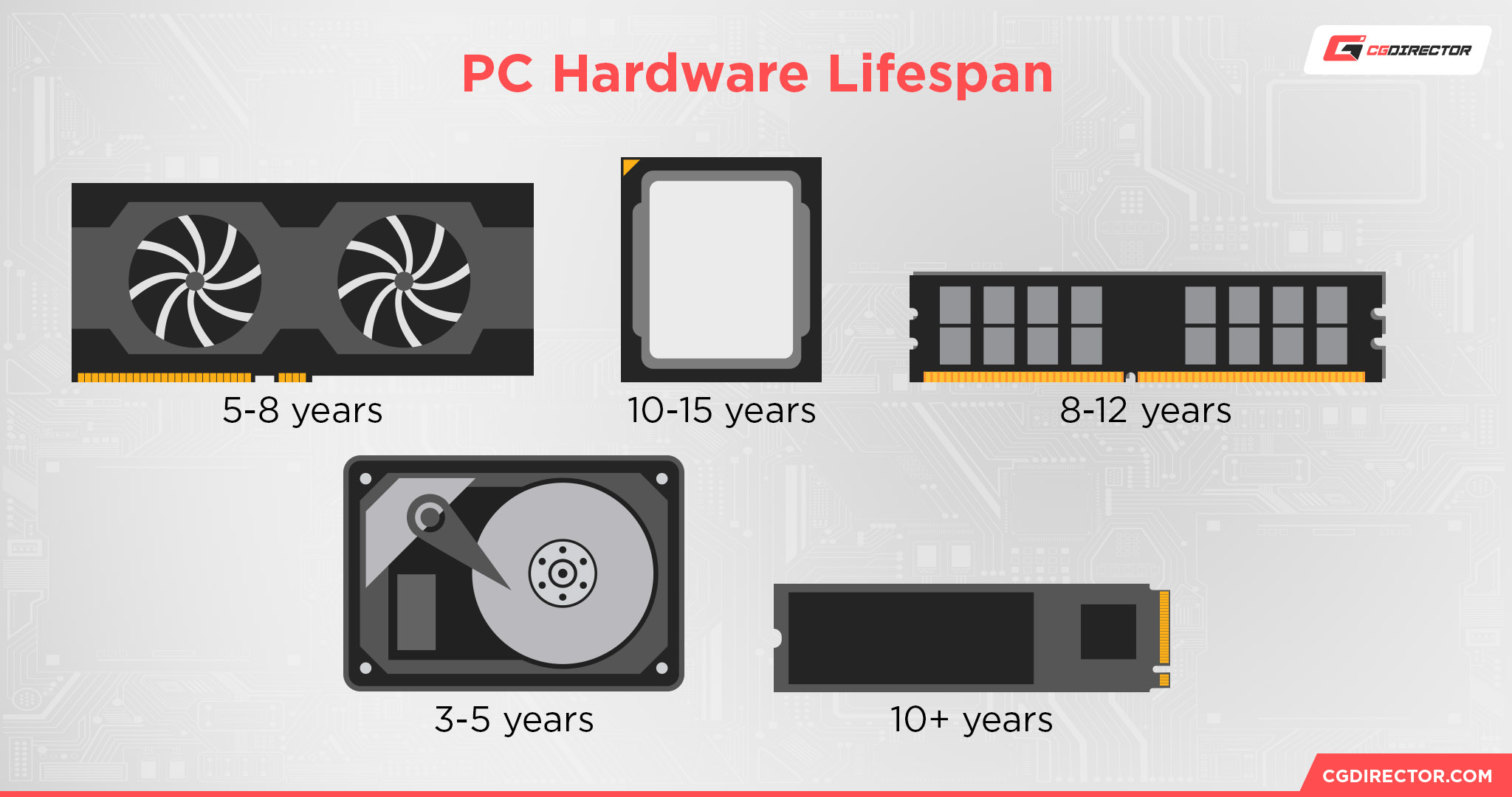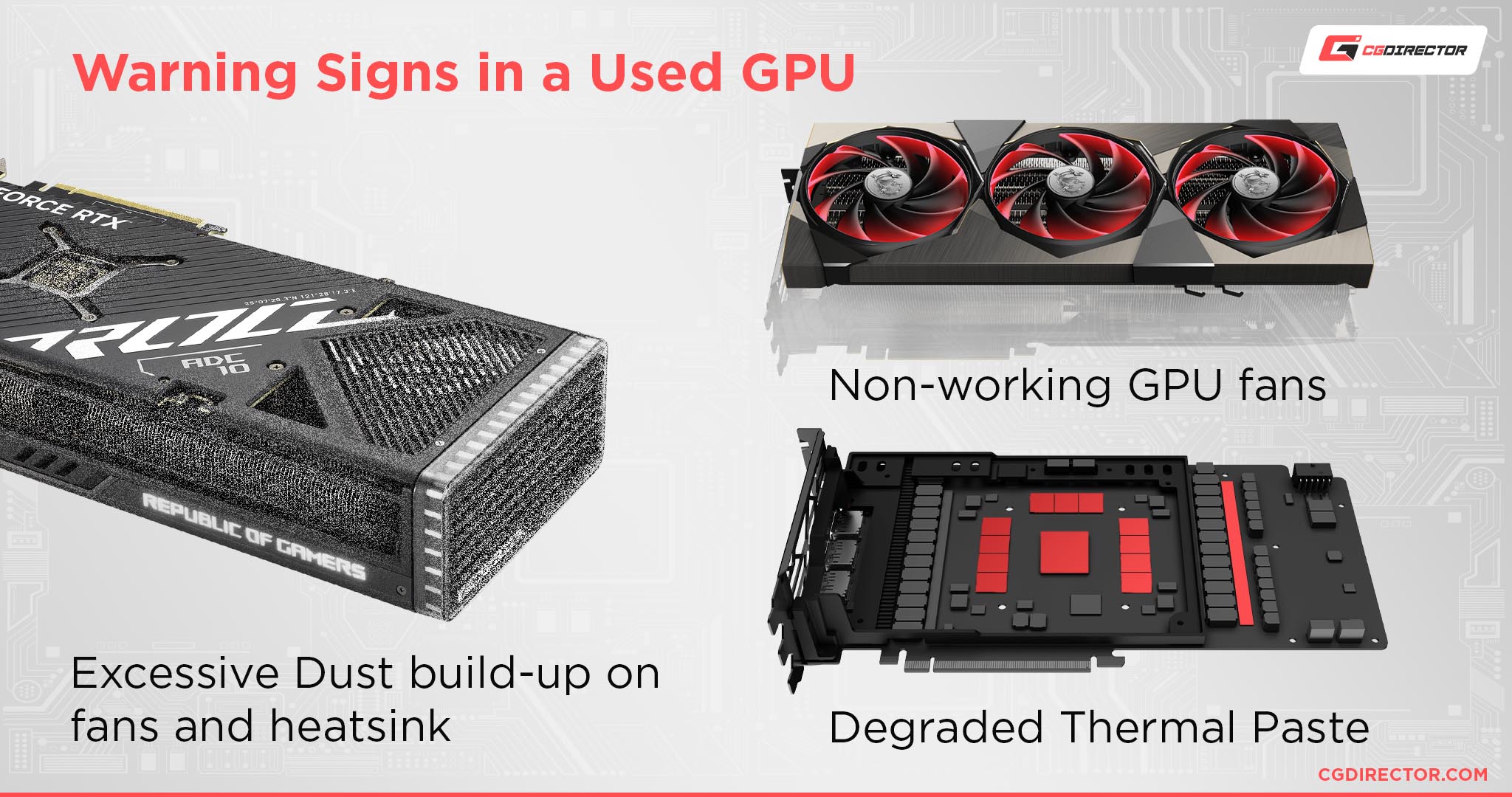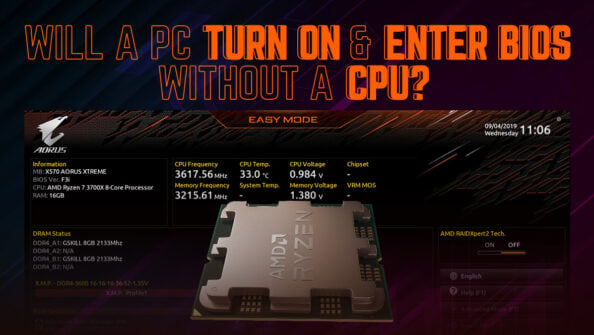Is buying a used CPU safe? What factors should you consider for and against buying a used processor?
I’ll be tackling these and related questions today, so stick around and I’ll walk you through all you need to know to determine if buying used CPUs is safe.
You can also skip through the Table of Contents if you please— but let’s get into it!
TABLE OF CONTENTS
A Brief on Used PC Hardware
While the world of PC hardware is full of variety and possibilities, this variety often results in dollar pricing that’s a little too much to afford for day-to-day consumers.

Source: Asurion
Fortunately, the open nature of PC hardware, repair, and upgrades means that the PC platform also enjoys a healthy secondhand market, and this applies especially to selling used PC hardware.
Of course, when it comes to buying used PC hardware, there are some components you don’t necessarily want to buy used.
Buying a used HDD, for example, could result in you dealing with a drive that fails from over-exertion within a few months of you owning it due to past overuse.
Fortunately, CPUs actually fare pretty well on the used market.
As long as the CPU itself hasn’t actually been physically damaged, there’s no reason to expect it to do anything but work as expected for 10-15 years after its initial manufacturing— past which it still might just get slower due to internal degradation rather than actually cease functioning.
Is Buying A Used CPU Safe?
I say yes, generally speaking.
As long as some kind of seller protection is in place in case you are sold an outright non-working CPU, buying a used CPU is safe.

Used CPUs rarely have any actually-perceivable downsides, and most CPUs are rated to last up to 10 years or more without issue. This makes them a great choice for buyers and resellers.
Why You Should Consider a Used CPU
CPUs Take Pretty Long To Degrade
As mentioned earlier, CPUs take fairly long to degrade, which helps alleviate one of the chief concerns of used PC hardware: component longevity.
Thus, a CPU you find on the used market isn’t necessarily on its way out.
In fact, CPUs in general have such good lifespans that you’re unlikely to have to worry about any CPU you have to use failing until the time for you to replace it of your own volition has already come and passed.
Better Prices— Especially on Older CPUs
In today’s economy and PC hardware market conditions, sometimes you may want to go used just to save money and shop for better prices.
CPUs are included in this, but fortunately can turn around fairly strong results in their “second life” so long as they haven’t endured any abuse that actually damages the processor itself.
Similar or Better Performance Compared To New
Since used CPUs are unlikely to have degraded compared to new CPUs, you usually don’t need to worry about a used CPU having worse temperatures, operating clocks, or anything like that.
If you’re lucky, the used CPU you snag from the used market might even be a well-binned CPU— “binned” refers to GPUs binned by manufacturers for their longevity or performance.
Why You Shouldn’t Get a Used CPU
Secondhand Market Risks
Anyone buying used PC hardware should know that buying from the secondhand market comes with a few inherent risks. Secondhand market risks include damaged or blemished hardware and hardware that doesn’t function at all.
Always be sure there are real photos of the CPU available (not just marketing product shots), and you can inspect it for obvious damage, such as bent pins, deformation, or burn marks.
You can mitigate the risks of buying secondhand hardware by using platforms with seller protection in case something goes wrong, though.
The Casual Creep of CPU Obsolescence
Another reason to consider skipping out on a used CPU is to avoid needing to upgrade your motherboard for a longer period of time.
New CPU microarchitectures (especially from Intel) tend to result in the debut of new motherboards with new sockets for the new processors.
Unfortunately, the average CPU socket only lasts a few years before it gets replaced with a new socket for further use and experimentation, so used CPUs and boards within these market conditions can feel particularly hard to upgrade.
FAQ
When Is The Best Time To Buy Used PC Hardware?
Realistically speaking, used PC hardware is generally much less prone to fluctuations than new PC hardware.
While you may have a range of potential prices when you’re shopping for used PC hardware, the range of prices at which a secondhand GPU is sold corresponds closely to its street value.
However, used PC hardware and its market can be prone to pricing fluctuations in accordance with new PC hardware drops or annual holiday sales.
I’ve written a longer article about The Best Time To Buy Computer Parts elsewhere targeted at new parts, but the used parts market should have its prices impacted by new hardware releases, too.
Is Buying a Used GPU Safe?
Generally speaking, yes, but you do run a higher risk of needing to do a thermal paste replacement the older the used graphics card in question gets.
Since replacing the thermal paste is an eventual necessity for any desktop graphics card (even though it usually takes years for the temperatures to get that bad), used GPUs naturally have a higher risk of developing the issue or having it when you acquire the card.
I’ve written an extended “Is Buying Used GPUs Safe?” guide already if you want more information on the GPU side of this equation. For now, though, I need to get this one wrapped up!
Over to You
And that’s all, for now! I hope this article helped clarify whether or not buying a used CPU is safe for your buying needs. The answer is generally “yes”, you’ll just want to be mindful of the platform you’re using to make your secondhand PC hardware purchase.
If you need any more help or have other questions about CPUs or PC hardware, feel free to ask them in the comments section below! Me or another member of the CGDirector Team will be happy to help you out.
Alternatively, you can also try out our Forum if want more detailed responses from other Enthusiasts and Experts.
Until then or until next time, happy building! And remember: buying used is generally safe, but you definitely don’t want a used Hard Drive.
![Is Buying A Used CPU Safe? [Or should you buy new?] Is Buying A Used CPU Safe? [Or should you buy new?]](https://www.cgdirector.com/wp-content/uploads/media/2023/10/Is-Buying-A-Used-CPU-Safe-Twitter-1200x675.jpg)
![How to Get a CPU Cooler off of a CPU [Un-stick Glued-On Cooler] How to Get a CPU Cooler off of a CPU [Un-stick Glued-On Cooler]](https://www.cgdirector.com/wp-content/uploads/media/2024/03/How-to-get-CPU-Cooler-off-CPU-Twitter-copy-594x335.jpg)

![“Best” PC Bottleneck Calculators [CPU/GPU]: Do they even work? “Best” PC Bottleneck Calculators [CPU/GPU]: Do they even work?](https://www.cgdirector.com/wp-content/uploads/media/2024/01/Best-PC-Bottleneck-Calculators-CPUGPU-Explained-Twitter-594x335.jpg)
![Best CPU for Video Encoding [2024 Update] Best CPU for Video Encoding [2024 Update]](https://www.cgdirector.com/wp-content/uploads/media/2022/02/Best-CPU-For-Video-Encoding-Twitter-594x335.jpg)

0 Comments